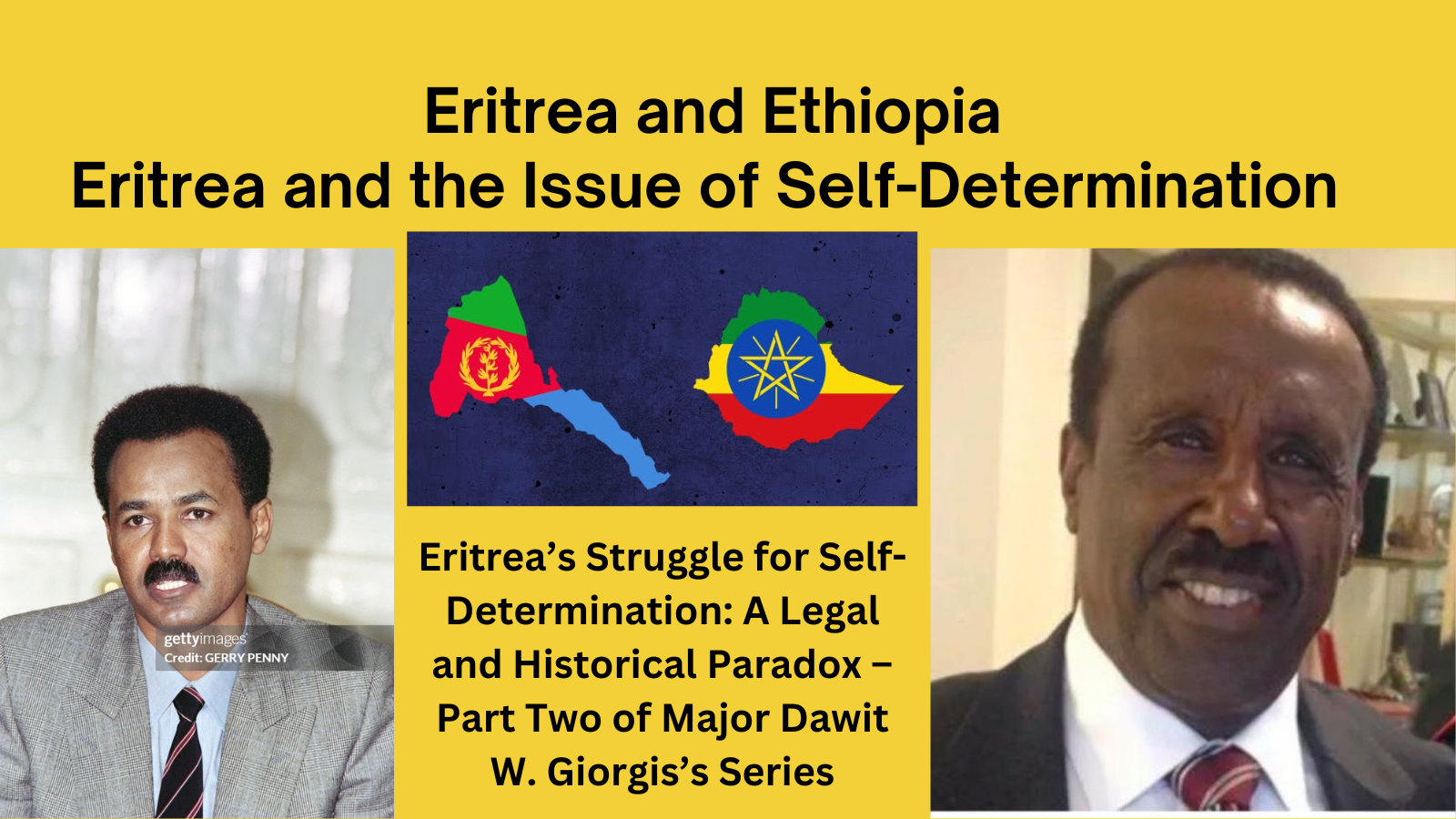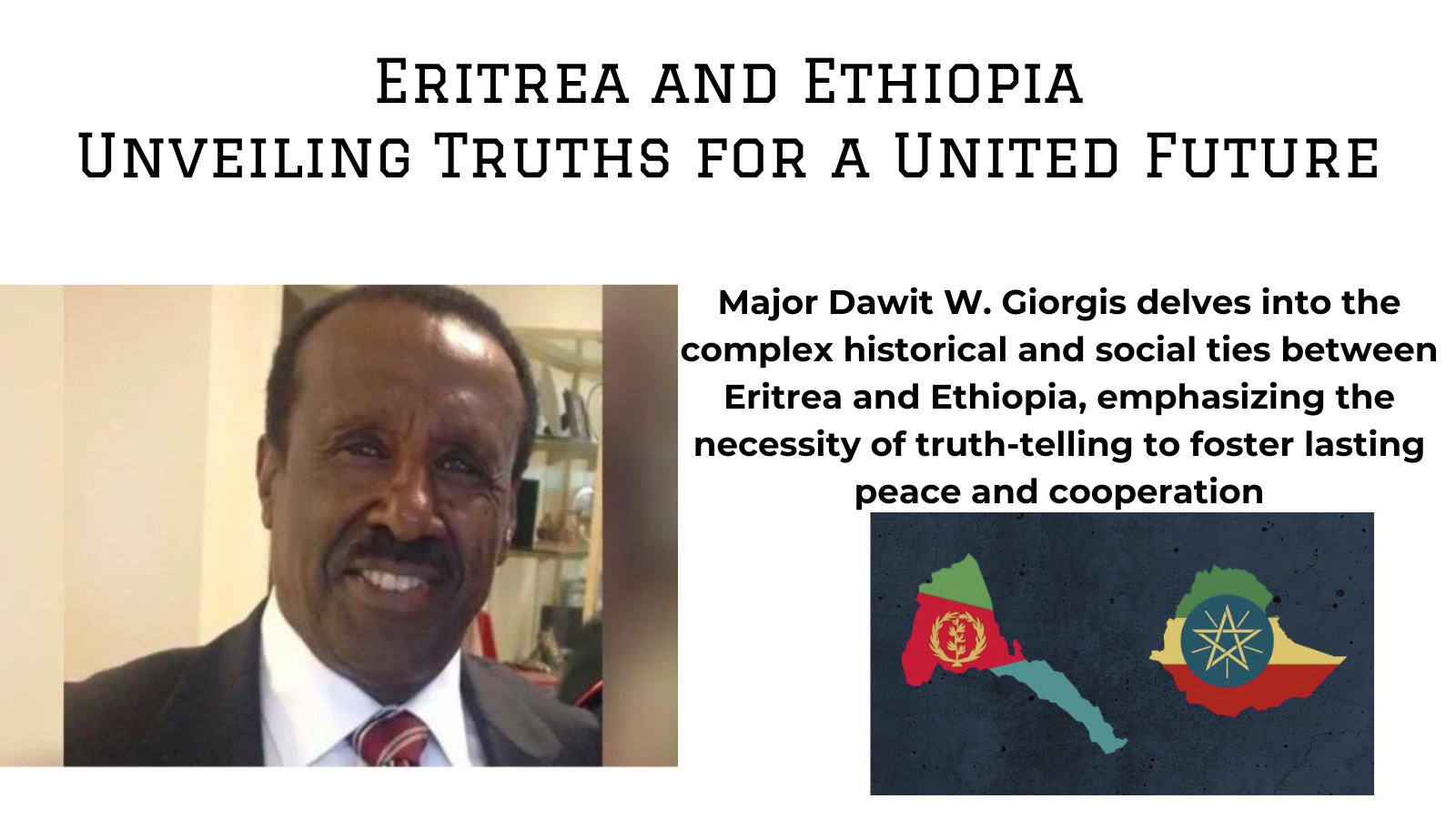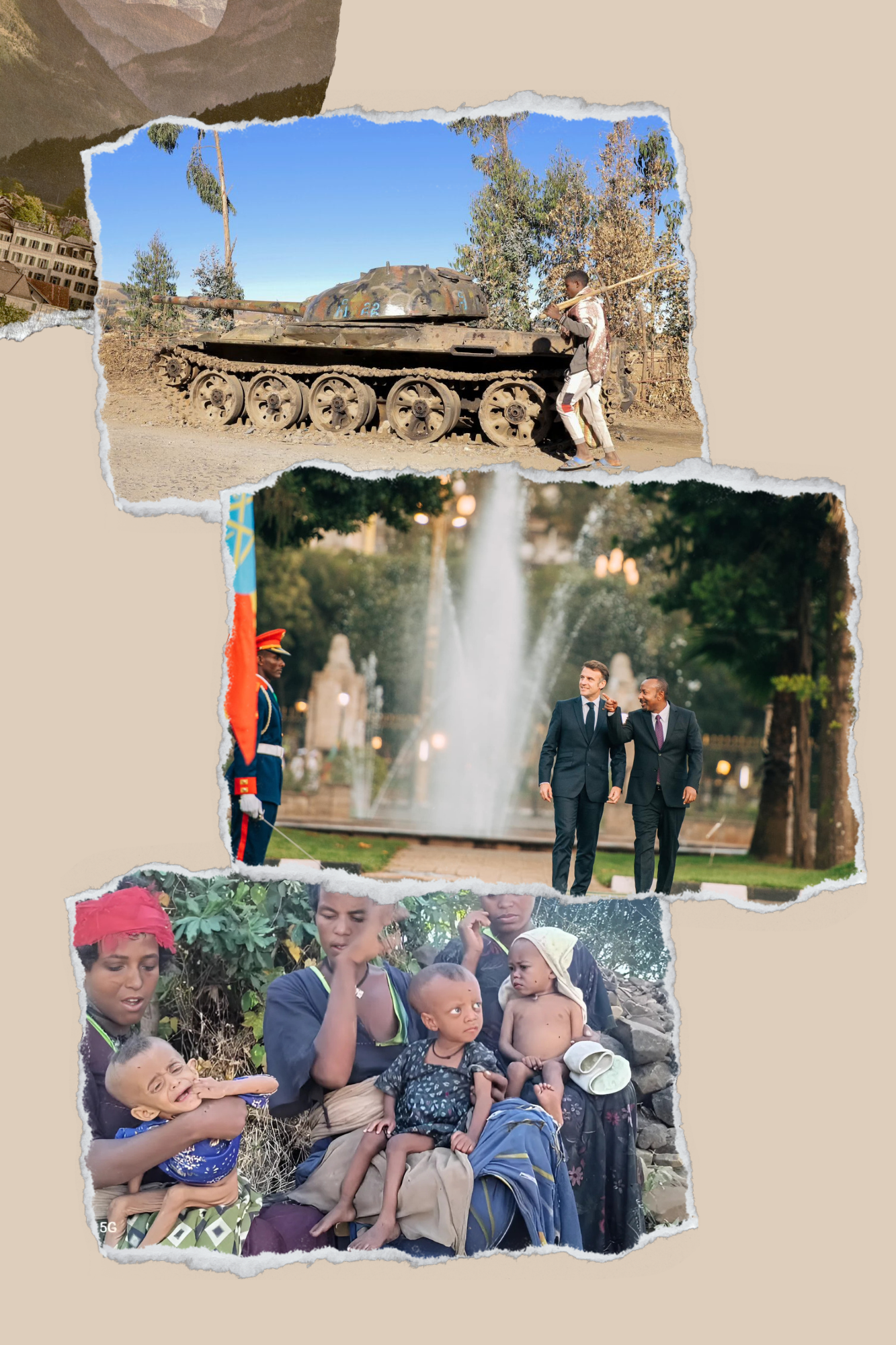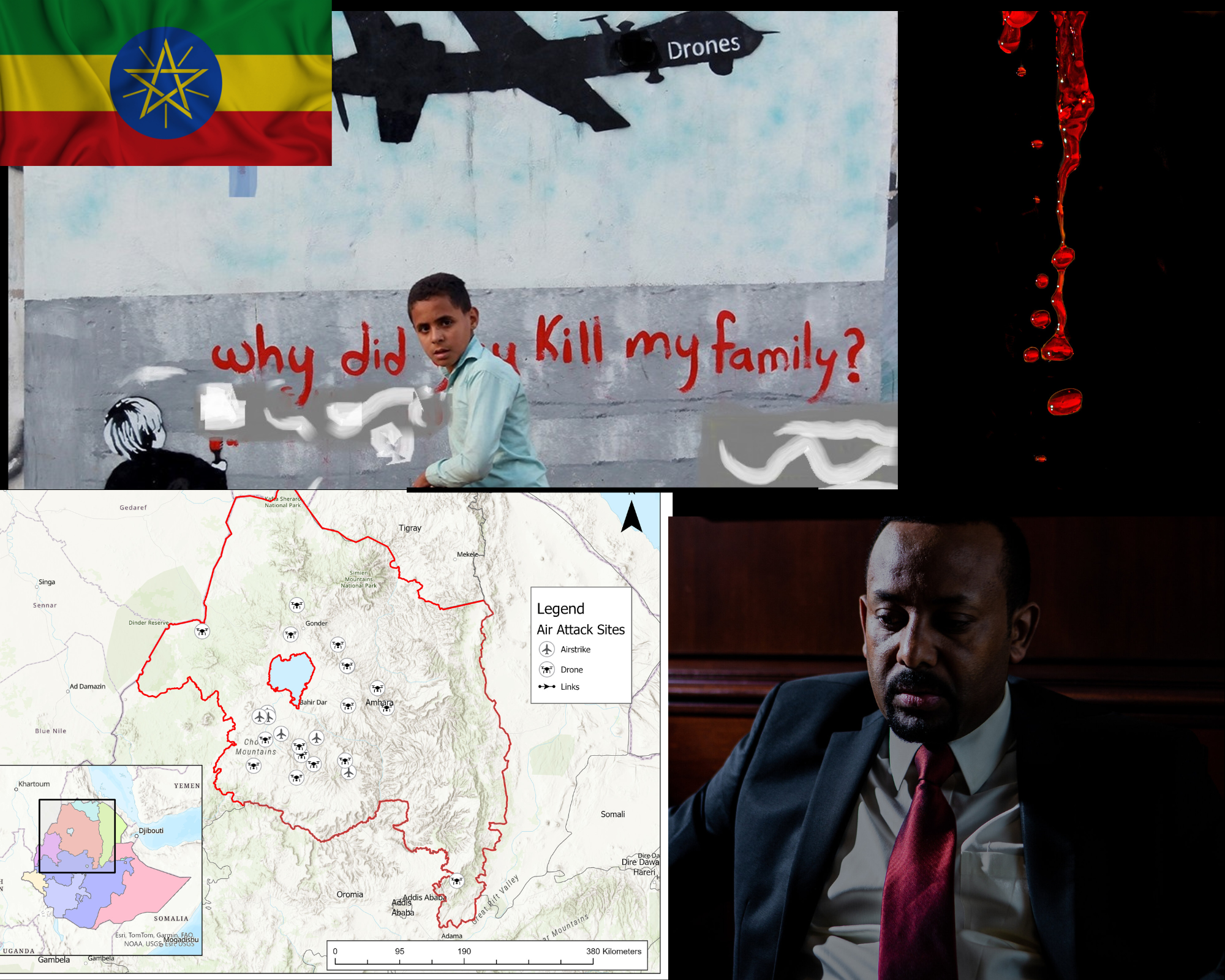Amhara in the Midst of War: A Global Appeal for Critical Humanitarian Aid
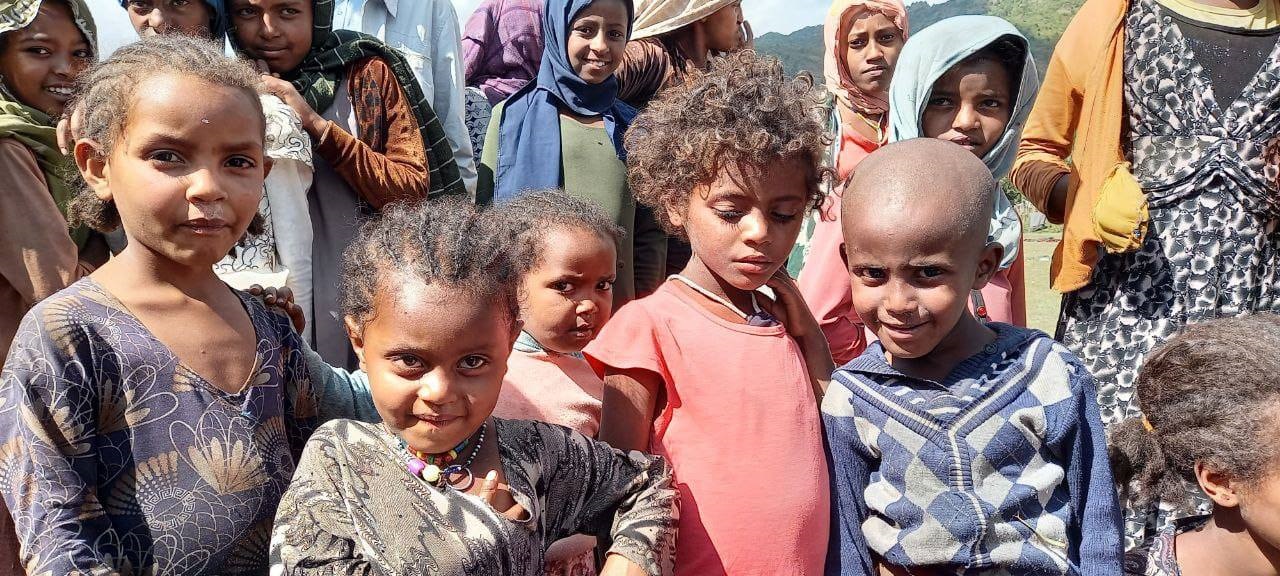
While global attention is focused on crises such as Gaza and Ukraine, the Amhara region of Ethiopia faces an equally dire humanitarian catastrophe. The ongoing conflict, compounded by deliberate attacks on civilians and infrastructure by state and non-state actors, has displaced millions, crippled essential services, and created a health emergency of unprecedented scale. Millions in Amhara are without access to food, clean water, shelter, and medical care.
Despite urgent warnings from humanitarian organizations, the crisis remains largely ignored, exacerbating the suffering of Amhara’s most vulnerable populations. The Amhara Society Network (ASN) continues to advocate for international attention and support, stressing the importance of urgent aid in the areas of healthcare, food security, displacement, and education.
Critical Healthcare Collapse: Emergency Action Needed to Save Lives
The healthcare crisis in Ethiopia’s Amhara region has reached devastating levels due to the deliberate targeting of medical facilities by Ethiopian military forces. In the latest UN report, more than 80 health centers have been destroyed or severely damaged, leaving millions without access to essential medical services. Pregnant women are particularly vulnerable, with many forced to give birth in unsanitary and unsafe environments due to the collapse of healthcare infrastructure. The lack of antenatal and postnatal care, coupled with the scarcity of skilled healthcare workers and delivery facilities, has significantly increased the risks of maternal and infant mortality. Diseases like cholera and malaria are also spreading unchecked, as health workers flee, and medical resources become increasingly inaccessible.
Children under five have also been severely impacted by the healthcare collapse, with widespread disruption of vaccination programs putting millions at risk of preventable diseases like measles, polio, and tetanus. UNICEF and WHO report that the suspension of immunization campaigns and health services has created a child health crisis, particularly in conflict-affected areas. The lack of vaccinations, compounded by inadequate nutrition and poor sanitation conditions in overcrowded displacement camps, has created an environment where diseases can easily spread, threatening the lives of the regions youngest and most vulnerable population.
The Amhara Society Network is urgently appealing for support to restore essential healthcare services in the region. Since the health service needs emergency response, there is a critical need for emergency health services, such as setting up mobile clinics and establishing satellite healthcare services to reach the affected populations. Immediate priorities include re-establishing medical supply chains, restoring maternal and newborn care, and deploying mobile health clinics to isolated areas. Without immediate aid, millions of lives remain at risk, and the region faces long-term health consequences, particularly for women and children. The international community must act now to prevent further loss of life and ensure that Amhara’s vulnerable populations receive the critical healthcare services they need.
The Amhara Society Network urgently calls for international support to restore healthcare services. As noted by Human Rights Watch, “Ethiopian federal forces operating with near impunity are unsurprisingly disregarding civilian lives by attacking medical facilities that are providing desperately needed care.” This highlights the urgent need for action to protect healthcare infrastructure in the region.
The Educational Crisis: Amhara’s Forgotten Students
The conflict in Ethiopia’s Amhara region has devastated the education system, affecting over 4 million students who have been deprived of their right to learn. According to a BBC Amharic report (2023), schools have either been destroyed or closed, leaving millions of children without access to basic education. Many families are struggling to prioritize education as they face displacement, with children and young adults living in overcrowded camps. This educational collapse is creating a “lost generation,” where students lack the opportunity to rebuild their future, trapping them in cycles of poverty and disenfranchisement (Amhara Association of America [AAA], 2024).
The destruction of over 4,000 schools in the Amhara region has further marginalized students, increasing their vulnerability to exploitation and violence. Save the Children (2023) reports that more than 2.3 million children in northern Ethiopia remain out of school despite efforts to negotiate peace. Many schools are still being used as shelters for internally displaced people (IDPs), and the necessary resources to rebuild damaged infrastructure are insufficient, making it difficult for students to return to normal learning environments (UNICEF, 2023; Save the Children, 2023).
Rebuilding the educational system requires a multi-faceted approach, including the reconstruction of schools and the provision of temporary learning spaces for displaced children. International aid is crucial to address the immediate and long-term needs of these students. Without substantial intervention, the lack of education will have severe repercussions for the future of Amhara’s youth, perpetuating poverty and violence for generations to come (EHRC, 2022; UNICEF, 2023).
Impending Hunger Catastrophe: On the Brink of Famine
The looming hunger crisis in Ethiopia’s Amhara region remains dire, with widespread hunger caused by the ongoing war waged and the displacement of farmers. The lack of proper rainfall over the past few seasons has exacerbated the crisis, leading to famine, drought, and displacement from homes, epidemic diseases, and deaths. According to updated reports, food production has collapsed due to disrupted agricultural activities and the deliberate destruction of food storage facilities. This is further compounded by the severe disruption of supply chains, resulting in an alarming increase in malnutrition, particularly among children.
The Amhara Society Network continues to appeal to international humanitarian organizations for urgent, coordinated intervention to assist those suffering due to the war waged by Abiy Ahmed’s government on the Amhara region. This includes setting up humanitarian corridors, establishing no-fly zones, or creating safe harbors where civilians can access essential supplies. Without immediate food assistance, millions of lives are at risk, and the region is on the verge of a famine. Access to basic necessities, such as clean water and adequate shelter, also remains critical as the situation worsens. The combination of war, drought, and disrupted agricultural practices has placed the Amhara population in an extremely vulnerable position, where both short-term and long-term support are urgently needed.
IDP Crisis: Overcrowded Camps and Looming Regional Instability
The conflict in Ethiopia has led to a massive displacement crisis, with the Amhara region bearing the brunt. Many Amhara people fleeing war from Oromia have sought refuge in overcrowded IDP centers, including Debre Brehan and Hayq. These camps, critically under-resourced, lack clean water, sanitation, shelter, and access to health services, straining already depleted resources. If not addressed swiftly, the crisis could have spillover effects across the Horn of Africa, leading to increased refugee flows, destabilizing the region, and exacerbating the global migration crisis.
The ongoing war has forced about 6,000 children, many of whom are orphans escaping ethnic cleansing from Qellem Wollega in Oromia and Metekel, into these overcrowded camps. The combination of poor living conditions, lack of healthcare, and insufficient nutrition support continues to deteriorate, and the mental and physical health of the displaced population worsens. Moreover, these camps are located in war zones, further exposing vulnerable populations to danger. Mobile health teams are deployed, but the scale of the problem far exceeds the available resources.
The implications extend beyond the immediate humanitarian crisis. Without large-scale, urgent interventions, the living conditions in these camps will continue to degrade, creating a significant risk of mass migration from Ethiopia into neighboring countries. This could result in regional destabilization in the Horn of Africa, triggering security concerns and compounding the global migration crisis. It is imperative that comprehensive international action is taken to prevent further escalation and address the root causes of displacement in the Amhara region.
Clean Water and Sanitation: A Growing Health Risk
The water and sanitation crisis in Ethiopia’s Amhara region has reached alarming levels, with more than 10 million people currently without access to clean and safe drinking water. This lack of access has resulted in the rapid spread of waterborne diseases, including cholera, which has become a significant public health emergency. As of May 2024, over 5,100 cases of cholera were confirmed, highlighting the dire situation.
The limited availability of clean water and proper sanitation facilities has exacerbated the spread of infectious diseases, leaving already vulnerable populations at greater risk of illness and death.
Efforts by humanitarian organizations to improve water, sanitation, and hygiene (WASH) conditions have been insufficient given the scale of the problem. Infrastructure for water delivery has been severely damaged due to conflict and attempts to restore vital water points have been slow. Additionally, overcrowded displacement camps, where people have limited access to sanitation services, have further contributed to unsanitary conditions that foster the spread of disease. With the region facing continuous conflict and disruptions in basic services, the current WASH crisis poses an imminent threat to millions, particularly children and those living in densely populated camps.
Urgent international intervention is required to scale up water supply and sanitation efforts to avert further loss of life. Without immediate and coordinated global assistance, the health crisis in Amhara is likely to worsen, with more cholera outbreaks and other water-related diseases spreading rapidly. The situation demands attention, as basic needs like clean water are fundamental to survival and essential for preventing large-scale disease outbreaks.
Weaponizing Ethnic Identity: How the Abiy Ahmed Regime Uses Amhara Identity as a Tool for Political Suppression
The Abiy Ahmed regime has increasingly weaponized Amhara identity for political suppression, treating ethnicity as a criminal marker. Through mass arrests and targeted persecution, the government has painted the Amhara people as national security threats, fueling ethnic tensions. Amnesty International reports widespread arbitrary detentions of Amhara civilians and political figures without due process, violating their fundamental human rights.
Under international law, including the Geneva Conventions and human rights treaties, “acts that intentionally target civilians and persecute based on ethnic identity constitute violations of international humanitarian law.” Specifically, Article 3, common to the four Geneva Conventions of 1949, prohibits violence to life and people, including torture and cruel treatment, against individuals not taking part in hostilities, including civilians. Additionally, the Fourth Geneva Convention (1949), Articles 27 and 33, prohibits collective punishment, the persecution of civilians, and the unlawful detention of non-combatants. These legal obligations compel the global community to intervene in the face of mass atrocities and ethnic persecution.
The Awash Arba military detention center stands as a notorious example of these abuses, were hundreds of Amhara face torture and inhumane treatment. This facility symbolizes the broader pattern of suppression, including cultural erasure, land dispossession, and systematic war against the Amhara people. These actions, condemned by Amnesty International and other international organizations, represent a blatant disregard for the legal protections guaranteed under international human rights law. The global community must uphold these conventions and take action to protect civilians from ongoing atrocities.
Urgent Call for Global Action: Unjustified Neglect amid Greater Suffering
The humanitarian crisis in Amhara is spiraling out of control, yet it shockingly receives far less global media attention than conflicts like those in Ukraine or Gaza, despite the human loss being equally—if not more—severe. The displacement, ethnic cleansing, and mass starvation in Amhara are catastrophic. Without immediate intervention, irreversible consequences will devastate the region’s social, economic, and health systems, leaving millions vulnerable.
This crisis deserves the same level of global urgency as more publicized crises, demanding coordinated global action to prevent further human suffering. Failure to act will lead to long-term impacts: widespread malnutrition, a collapsing healthcare system, and socio-economic breakdowns that could destabilize the Horn of Africa and further contribute to the global refugee and migration crisis. The current lack of large-scale aid not only exacerbates the suffering but also risks a humanitarian disaster that will be irreparable if not addressed in time.
The world cannot afford to turn a blind eye. It must respond to Amhara’s plight with the same vigor applied to other international crises, recognizing that delayed action will have far-reaching consequences for global security and stability. A coordinated global effort is urgently needed to deliver emergency food, healthcare, clean water, and protection for those most affected by this overlooked atrocity.
Editorial Note:
This international appeal was originally published in other outlets, and the Amhara Society Network (ASN) reached out to us for republication.
Editor’s Note: The views expressed in articles published by East African Review are those of the individual authors, institutions and do not necessarily reflect the perspectives of the editorial team or East African Review as an organization. The publication of any Op-Ed piece does not imply endorsement by East African Review.—please feel free to share them in the comments section below or email us at [email protected].
References
Amnesty International: Mass Arbitrary Detentions in Amhara Region
BBC AMHARIC: Awash Arba: The 'Guantanamo of the desert'
Amhara Association of America (AAA). (2024). Ethiopia's Amhara region in crisis: Unveiling a year of human rights violations. Retrieved from https://www.amharaamerica.org/report
BBC. (2023). የአማራ ክልል ተማሪዎች እንደ እንቅስቃሴ ተጉላል የሚለውን አውሬ ክፍል ከማታች በትምህርት ተቸግረው አለቀሱ. [Amhara students suffer due to conflict]. Retrieved from https://www.bbc.com/amharic/articles/cpe37n32gqpo
Human Rights Watch (HRW). (2024). Ethiopia: Army attacks on healthcare in Amhara conflict. Retrieved from https://www.hrw.org/news/2024/07/03/ethiopia-army-attacks-health-care-amhara-conflict
International Committee of the Red Cross (ICRC). (2024). Ethiopia: Responding to the humanitarian needs in conflict-affected areas. Retrieved from Ethiopia: Thousands of people unable to access healthcare services after upsurge in violence
International Organization for Migration (IOM). (2023). Displacement Tracking Matrix: Ethiopia. Retrieved from https://displacement.iom.int/ethiopia
United Nations Children's Fund (UNICEF). (2023). Ethiopia humanitarian situation report. Retrieved from https://www.unicef.org/reports/Ethiopia/Annual Report 2023
United Nations High Commissioner for Refugees (UNHCR). (2023). Ethiopia: Displaced populations in need of urgent protection. Retrieved from https://www.unhcr.org/ethiopia
United Nations Office for the Coordination of Humanitarian Affairs (UNOCHA). (2023). Ethiopia humanitarian needs overview. Retrieved from https://www.unocha.org/ethiopia
World Food Programme (WFP). (2023). Food assistance in Ethiopia’s Amhara region. Retrieved from https://www.wfpusa.org/news-ethiopia
World Health Organization (WHO). (2023). Health situation in conflict-affected areas of Ethiopia. Retrieved from https://www.who.int
